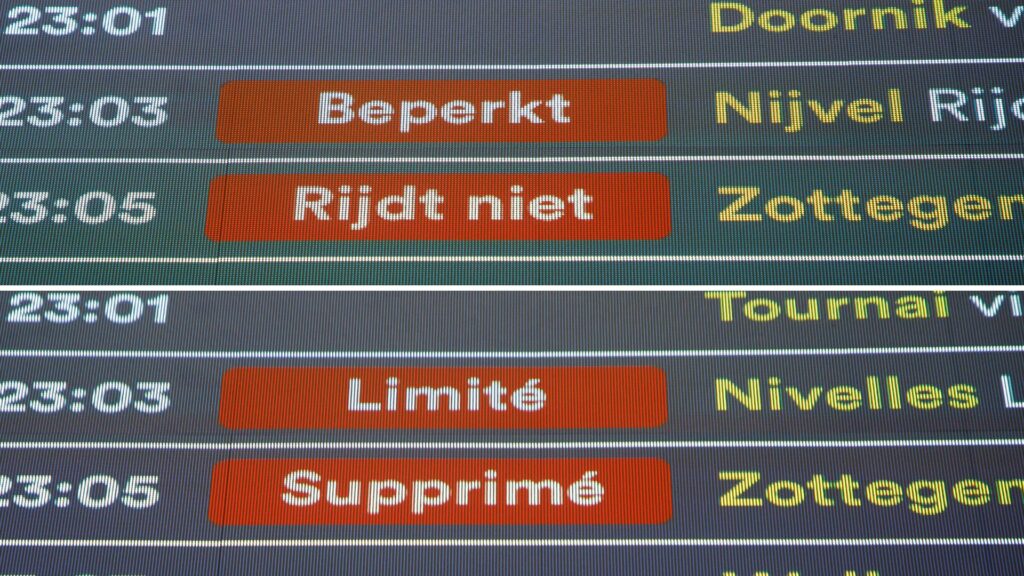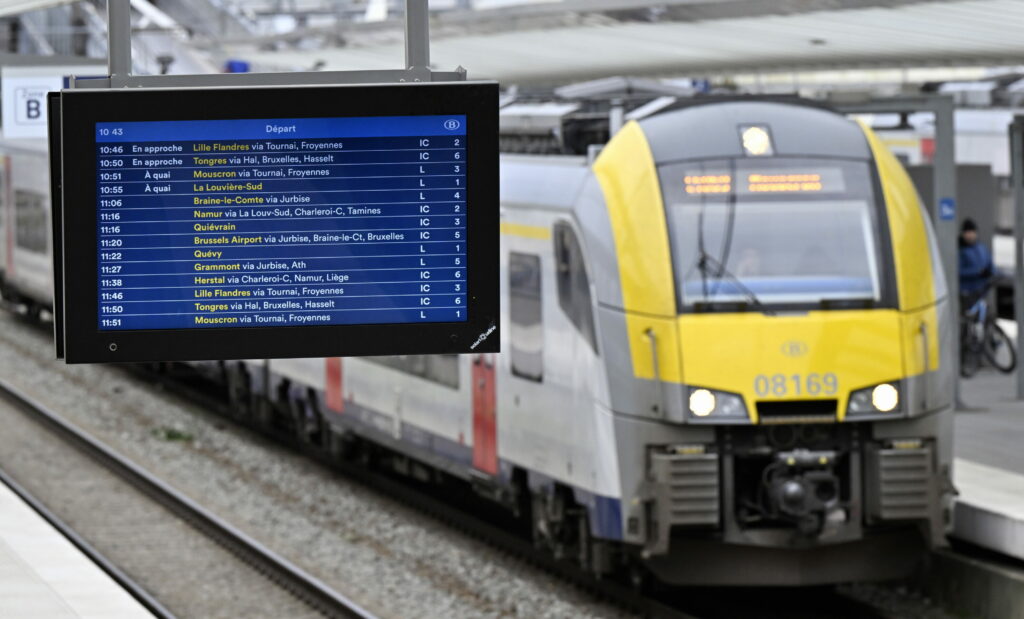While language has always been a sensitive subject in Belgium, nothing illustrates the absurdity of the country's complicated laws so well as the rules on trains.
The current language laws on Belgian trains date back to 1966. As Belgian railway operator SNCB is owned by the Belgian Government, the rules are applied quite strictly – with one train conductor recently getting into trouble for using the wrong language.
Conductors must adhere to location-specific language guidelines. In Flanders, all announcements and information on the digital boards inside trains must be in Dutch. In Wallonia, they must be in French. But once the train crosses into Brussels, conductors must switch to bilingual announcements in French and Dutch.
This means that in a train from Ostend to Liège, announcements are first made only in Dutch (the part of the route from Ostend to Brussels), then in both national languages (in Brussels), then only in Dutch again (between Brussels and Wallonia), and then only in French (as soon as the train is in Wallonia).

Credit: Belga
This applies not only to the announcements but also to the place names used, including those of places on the other side of the language border. For example, the terminus of the above-mentioned train will be referred to as 'Luik' as long as the train is in Flanders, before becoming 'Liège' once the train is in Francophone territory.
For trains that also cross into the German-speaking Community, there is no obligation to make the announcements in German as the area is part of the Walloon Region. But some conductors still do.
In practice, this means that about half of the announcements on these trains are also made in German, depending on where the conductor comes from and how well they speak German.
Brussels is extra special
In Brussels, the situation is even more complex as the order of the languages used in announcements depends on the conductor's native tongue: if the conductor is a native French speaker the announcements must first be made in French before being repeated in Dutch, and vice versa.
For the announcements in the train stations, there is a special rule for Brussels. In Brussels North announcements are first made in Dutch whilst in Brussels Midi they are first in French.
In Brussels Central, the order changes every year: in even years the announcements are made in Dutch first, in odd years first in French. For the other stations in Brussels, the exact location of the station determines the order.
What about individual passengers?
Importantly, a conversation with an individual passenger must always take place in the language of the passenger (normally Dutch or French, but other languages can also be used if needed), wherever the train happens to be. In the stations passengers must also be served in the language of the region, meaning that all train conductors and ticket office staff are at least bilingual. By law, they are required to prove their knowledge of the other national language in an exam.
One notable exception to the language law exists for trains heading to Brussels Airport, where announcements can be made in four languages: Dutch, French, English, and German, regardless of the train's location in Belgium.

